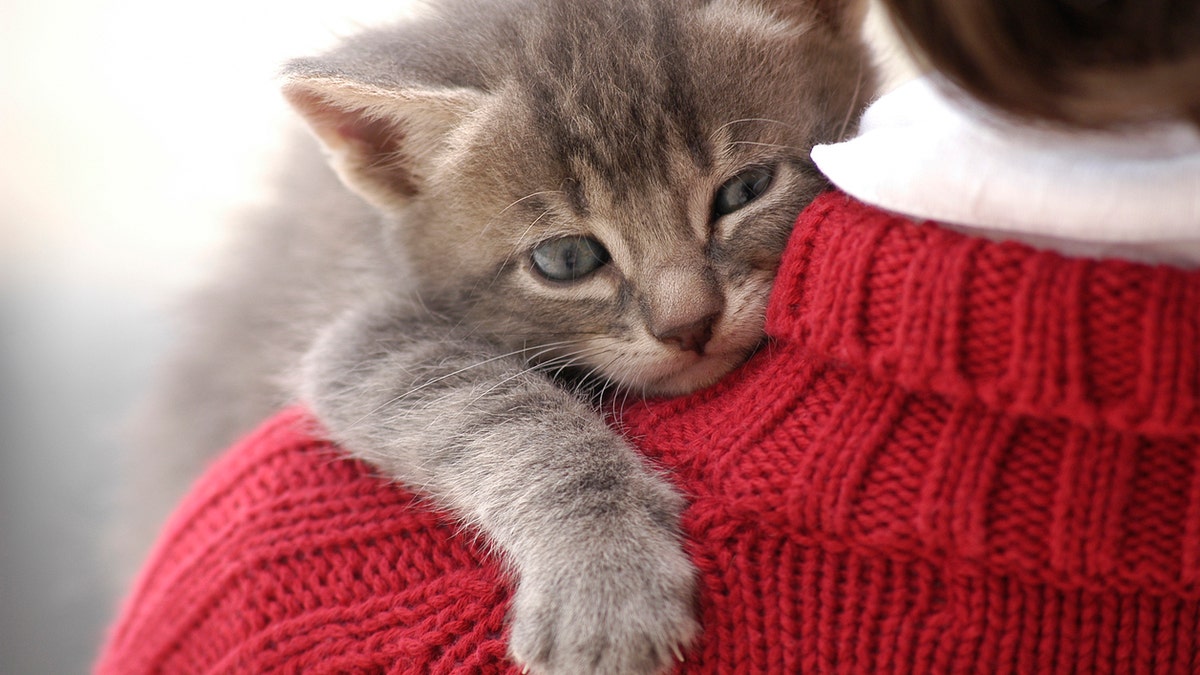
small and cute kitten on little girl shoulder (iStock)
Although you may hold suspicions about your neighbor who feeds the local stray cats, new research has found no link between owning a feline and exhibiting psychotic symptoms. The University College London findings cast doubt on previous research, which suggested that people who grew up with cats are at a higher risk of mental illness.
Cats are a primary host of Toxoplasma Gondii (T. Gondii), which is associated with mental health conditions like schizophrenia. That link led researchers to believe raising children in a household with cats could lead to later development of mental illness.
“The message for cat owners is clear: there is no evidence that cats pose a risk to children’s mental health,” Dr. Francesca Solmi, the study’s lead author, said in a news release. “In our study, initial unadjusted analyses suggested a small link between cat ownership and psychotic symptoms at age 13, but this turned out to be due to other factors.”
The research, which was published in Psychological Medicine, focused on nearly 5,000 people born in 1991 or 1992 who were followed up with until the age of 18. The data considered included whether the household had cats while the mother was pregnant and when the children were growing up.
“Once we controlled for factors such as household over-crowding and socioeconomic status, the data showed that cats were not to blame,” Solmi said. “Previous studies reporting links between cat ownership and psychosis simply failed to adequately control for other possible explanations.”
The news release said the newest findings are considered more reliable than previous studies due to the size and duration. It also cautioned that T. Gondii still poses a significant risk to pregnant women and a developing fetus.
“Our study suggests that cat ownership during pregnancy or in early childhood does not post a direct risk for later psychotic symptoms,” Dr. James Kirkbride, the study’s senior author, said in a news release. “However, there is good evidence that T. Gondii exposure during pregnancy can lead to serious birth defects and other health problems in children. As such, we recommend that pregnant women should continue to follow advice not to handle soiled cat litter in case it contains T. Gondii.”







































